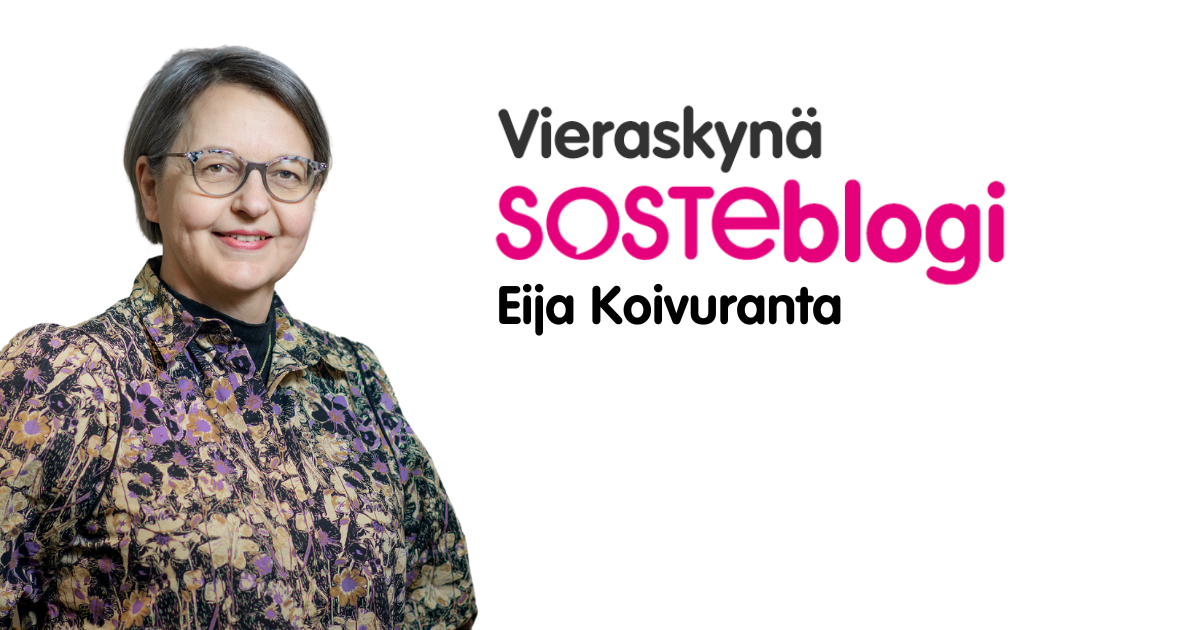The European Union has an exciting spring ahead of it, with the June elections setting the EU’s course for the next five years. The aim must be a stronger Union that seeks to reduce inequality, strengthen inclusion and ensure sustainable development.
The Finnish umbrella organisation for social and health organisations, SOSTE, has set four main objectives for the upcoming parliamentary term:
- Towards a European economy of wellbeing
- Strengthening the EU’s common health policy
- A free and strong civil society as the foundation of democracy
- The need to clarify the public procurement directive
The economy of wellbeing as part of EU economic governance
In a wellbeing economy, the value of investments is not measured in GDP alone. There is also a need for indicators such as equality, participation and environmental sustainability that show how societies and communities have managed to invest in the wellbeing and resources of people. Investment in wellbeing underpins not only the steady development of society, but also economic growth.
When discussing public debt, great importance must be attached to people’s wellbeing and the future of our planet. During the COVID-19 pandemic, for example, public debt ensured Finland’s economic resilience by providing automatic stabilisers and enabling expansionary economic policies to be pursued. At the same time, debt must always be kept under control, otherwise, over time, it will pose a threat to welfare policies and place a burden on people in future.
With the end of the COVID-19 pandemic, it is important to integrate the economy of wellbeing into the EU’s economic governance. As Finland’s public debt rose to around 75% of GDP as a result of factors including the pandemic, the European Commission has recommended that it carry out a fiscal adjustment, including cuts to welfare expenditure. In deciding where the adjustment will be made, inevitably a position is taken on the impact on income distribution. Severe welfare cuts are likely to increase poverty and inequality, even if successful in improving incentives to work. Depending on where the cuts are made and how big they are, they may be at odds with the EU’s 2017 target for Member States to reduce poverty by 15 million by 2030. Incorporating the economy of wellbeing into the EU’s economic governance could mitigate such contradictions and contribute to future European prosperity and economic growth.
A free and strong civil society is all the more important in a crisis
The elections will also determine the future of civil society. There is a risk of extremist populist forces gaining a stronger foothold in the European Parliament and shrinking the space for civil society in Europe. In order to combat this, the EU needs a civil society strategy that promotes inclusion. All EU countries must be able to have a strong, diverse and independent civil society that creates the conditions for socially sustainable development, democracy and human rights. Local democratic structures and processes also need to be supported.
The need for civic engagement is even greater in a crisis. Europe has faced major challenges in recent years, with increasing distress, poverty and inequality caused by the COVID-19 pandemic and the war in Ukraine. Without the support and assistance of NGOs and volunteers, current levels of distress and needs would be much greater. Solidarity with each other is a value that needs to be cherished and passed on from one generation to the next.
The importance of civic engagement in fostering and creating societies’ wellbeing should be widely acknowledged and taken into account in funding too. Civil society must be more closely involved in designing funding programmes as it receives resources from those programmes.
Relatively low levels of inequality, the family-friendliness of society, ensuring a safe environment for children to grow up in, equal access to education, gender equality, availability of social and health services, healthy ageing and high participation have contributed to success in Europe. All this may have been in mind when Finland was named the world’s happiest country for the seventh year in a row, with the Nordic countries coming top overall. The things that increase happiness and wellbeing should continue to be nurtured.
Eija Koivuranta’s article was published in April in the Civil Society Organizations’ Bulletin of the European Economic and Social Committee.
